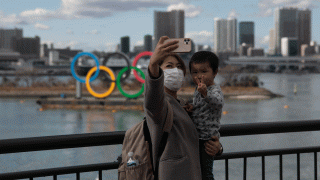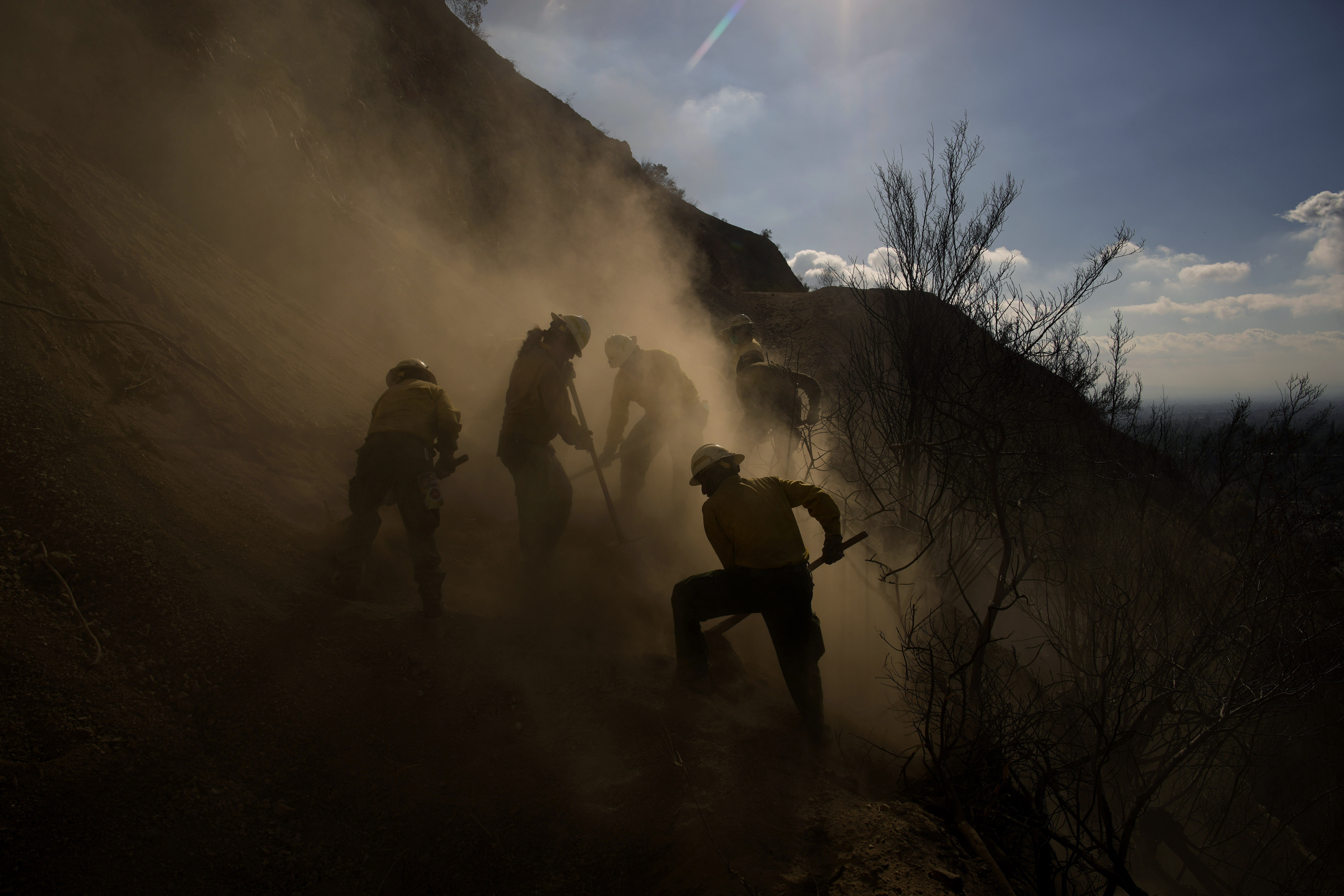
In this Wednesday, Jan. 29, 2020, file photo, a woman with a young boy takes a selfie with the Olympic rings, in Tokyo’s Odaiba district. Tokyo Olympic organizers are trying to shoot down rumors that this summer’s games might be cancelled or postponed because of the spread of a new virus.
The Tokyo Olympics open in five months on July 24. The Paralympics open on Aug. 25. But the fast-spreading coronavirus from China is making Tokyo organizers very anxious.
Three deaths have been reported in Japan with more than 700 cases - over 600 from a cruise ship that was docked in Yokohama. Globally, more than 77,000 people have been infected in 29 countries, and more than 2,300 have died — almost all in China. China is the host for the 2022 Winter Olympics in Beijing.
Local organizers and the Switzerland-based International Olympics Committee have said repeatedly the games will not be canceled or postponed.
Since the modern Olympics began in 1896, they have only been canceled during wartime. And in 1976, 1980 and '84 they faced boycotts.
Get top local stories in Philly delivered to you every morning. Sign up for NBC Philadelphia's News Headlines newsletter.
Tokyo held the 1964 Olympics and was to hold the Olympics in 1940, which were eventually called off by World War II and Japan's war with China.
The longer the outbreak continues, the more uncertainly it could create. Both the Olympics and Paralympics have been besieged with unprecedented ticket demand.
Here's some questions and answers about the virus and its threat to the Olympics.
U.S. & World
Stories that affect your life across the U.S. and around the world.
Q: WILL THE TOKYO OLYMPICS BE CANCELED OR POSTPONED?
The IOC, local organizers, the Tokyo city government and everyone involved is saying “no.”That includes Prime Minister Shinzo Abe. However, a respected Japanese virologist said this week the games would have to be postponed or canceled if they opened tomorrow.
“I'm not sure of the situation at the end of July,” Dr. Hitoshi Oshitani said. He said it would be “difficult to have the Olympics (now).” Other scientists have said they can't forecast what the situation will be in five months.
Q: ARE OTHER EVENTS LINKED TO THE OLYMPICS BEING CANCELED OR POSTPONED?
Yes.And the list is growing. Tokyo organizers announced very late on Friday night — near midnight Tokyo time — that training for 80,000 unpaid volunteers was being delayed until May or later. Some volunteers come from abroad. Organizers acknowledge they cannot run the games without them. Organizers this week also announced that a small test event in Tokyo Feb. 28-March 1 would be limited to only Japanese. The test is for Paralympic boccia and was to involve non-Japanese athletes.
Two upcoming test events — wheelchair rugby on March 12-15 and gymnastics on April 4-6 — are to have international fields. Tokyo spokesman Masa Takaya said this week he could not guarantee that non-Japanese would take part.
The Tokyo Marathon on March 1, usually with over 30,000 runners, is being limited to a few hundred elite athletes.
Dozens of sports events outside Japan are affected. Some Olympic qualifiers are being moved or postponed, which complicates life for athletes, sports federations, national Olympic bodies, and border officials who have to deal with health issues.
Q: WILL THE OLYMPICS BE MOVED TO ANOTHER COUNTRY?
Shaun Bailey, a Conservative Party candidate for London mayor, made that suggestion this week. It sounded like a political stunt. Some in London also wanted the 2016 Rio de Janeiro Olympics moved to the British capital because of the Zika virus. The games went ahead and the mosquito-borne virus subsided.
Tokyo Gov. Yuriko Koike said it was “inappropriate” to make a serious issue like the virus a talking point for London's mayoral race. London held the Summer Games in 2012.
Q: WHAT ABOUT THE TORCH RELAY?
So far it is on. The relay starts on March 26 in Fukushima prefecture in northeastern Japan and will circulate around the country for several months. It will involve mostly Japanese carrying the torch, but certainly non-Japanese will be involved. Any change to planning would be a worrying sign.
Q: HOW MUCH MONEY IS INVOLVED?
Local Japanese companies have paid over $3 billion for sponsorship deals to local organizers, a record amount that is at least twice any previous Olympics. Local organizers say they are spending about $13 billion to organize the Olympics, although a national audit report puts the cost at twice that much.
U.S. television network NBC pays about $1 billion for the broadcast rights to the Olympics. The July 24-Aug. 9 Tokyo Olympic slot is mostly determined by television. Moving the Olympics back a few months — when the weather is cooler in Tokyo — would seem impossible with the sports broadcast calendar filled with American football, college football, baseball, basketball, and ice hockey. The European soccer schedule is also packed beginning in fall.
Almost three-quarters of the income for the International Olympic Committee — $5.7 billion in a four-year cycle — is from broadcast rights.
Any change would cause massive disruption to the 11,000 Olympic athletes and another 5,000 Paralympic athletes — and their staffs, families and coaches. Tokyo hotels are booked solid during the Olympics — not to mention flights — with 7.8 million tickets available for the Olympics, and 2.3 million for the Paralympics.
___
More AP sports: https://apnews.com/apf-sports and https://twitter.com/AP_Sports



